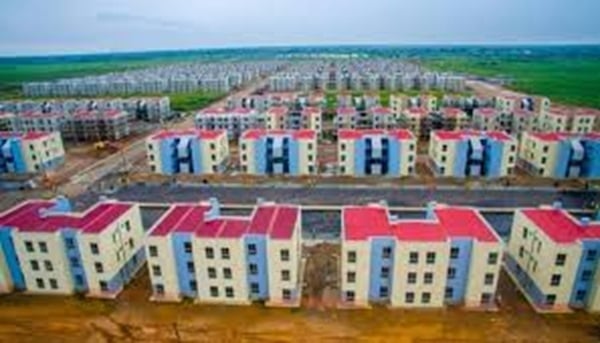The Saglemi Affordable Housing Project, envisioned as a solution to Ghana’s housing deficit, has been plagued by controversy since its inception. Initially launched with the ambitious goal of providing affordable housing units to Ghanaians, the project became mired in allegations of financial mismanagement and corruption, leading to a high-profile court case against key figures involved in its planning and execution. The charges, which included causing financial loss to the state, were brought against former government officials and private sector individuals, focusing on their roles in the alleged irregularities surrounding the $200 million project. This case became a focal point in national discussions about governance, accountability, and the fight against corruption.
The sudden withdrawal of all charges against the accused individuals in the Saglemi Housing Project case has generated significant public interest and debate. The Attorney-General’s decision, communicated through a nolle prosequi filing, effectively ends the prosecution and marks a dramatic turn in the saga. The individuals who were facing charges, including former ministers and executives, are now free from legal pursuit in this matter. This abrupt end to the legal proceedings has raised numerous questions about the underlying reasons for the withdrawal, prompting speculation about the strength of the evidence, potential legal technicalities, or even political considerations that might have influenced the decision.
The Saglemi housing project, initially intended to address Ghana’s housing needs, has become a symbol of stalled development and alleged mismanagement. The project, which aimed to construct thousands of affordable housing units, has remained incomplete for years, leaving the intended beneficiaries without access to the promised homes. The project’s failure to deliver on its initial promises has further fueled public frustration and raised concerns about the effective utilization of public funds. The withdrawal of the charges against those involved in the project’s planning and execution adds another layer of complexity to the situation, leaving many questions unanswered about the future of the project and the accountability of those involved.
The decision to drop the charges against the accused individuals has sparked widespread discussion and analysis. Legal experts, political commentators, and the general public are scrutinizing the Attorney-General’s rationale for withdrawing the charges. Some observers question whether the decision reflects a lack of sufficient evidence to secure a conviction, while others speculate about the potential influence of political considerations. The lack of a clear explanation from the Attorney-General’s office has further fueled speculation and raised concerns about transparency and accountability in the handling of the case. The implications of this decision extend beyond the immediate case, potentially impacting public trust in the justice system and the government’s commitment to combating corruption.
The withdrawal of charges in the Saglemi Housing Project case raises broader questions about governance and accountability in Ghana. The case had become a litmus test for the government’s commitment to pursuing corruption allegations against high-profile individuals, regardless of their political affiliations. The decision to discontinue the prosecution, without a detailed explanation, may be perceived by some as a setback in the fight against corruption and impunity. This perception could erode public trust in the government’s ability to hold powerful individuals accountable for their actions. Furthermore, the lack of clarity surrounding the reasons for the withdrawal raises concerns about the potential for political interference in legal processes.
The focus now shifts to the future of the Saglemi Housing Project itself. With the legal proceedings concluded, the government must determine how to proceed with the incomplete project. Options include restarting the project under new management, repurposing the existing structures, or even abandoning the project altogether. Each option carries significant financial and political implications. The government’s decision will be closely scrutinized by the public, particularly given the substantial public funds already invested in the project. The Saglemi Housing Project serves as a stark reminder of the challenges facing Ghana in addressing its housing deficit and ensuring accountability in public projects.














